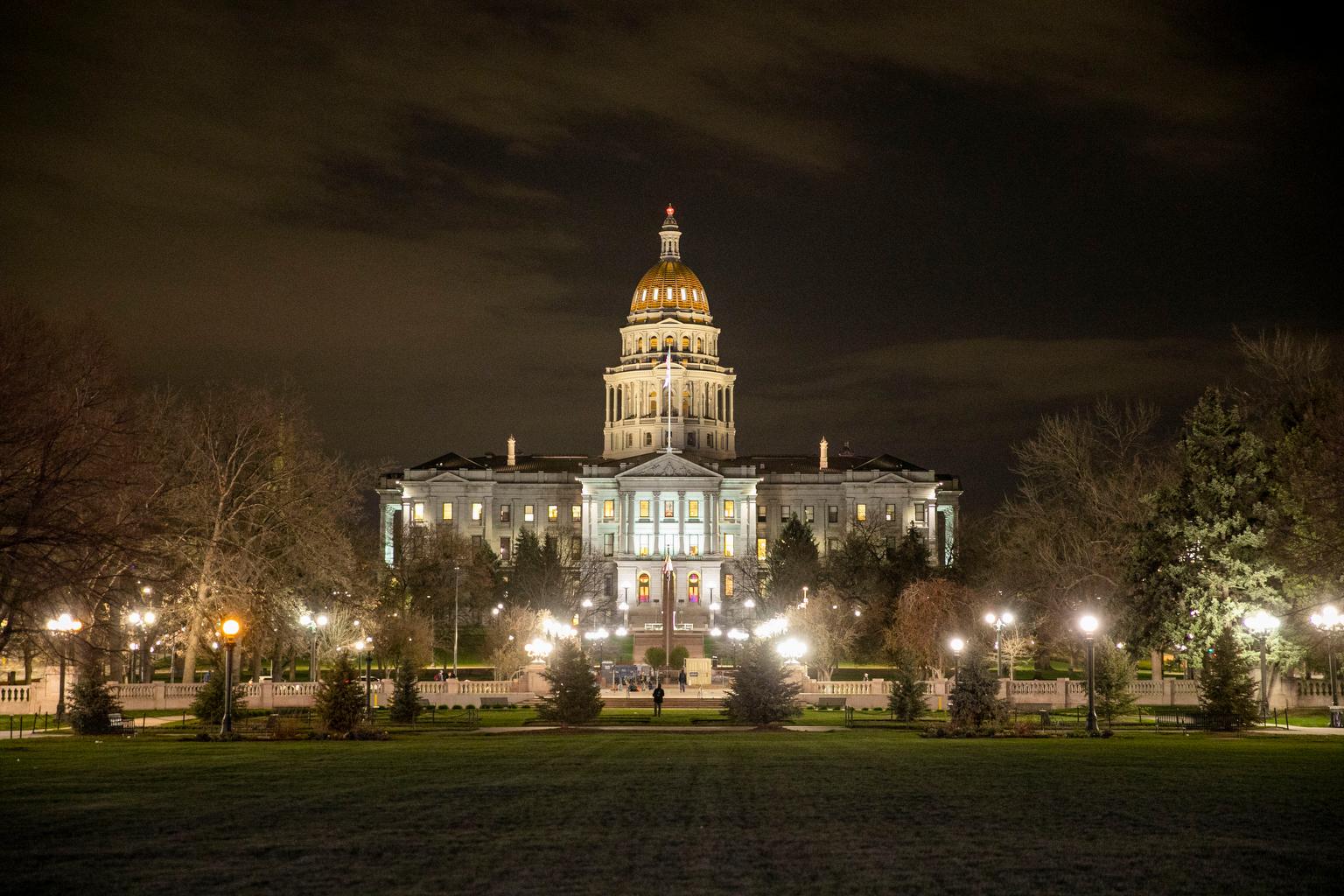
Colorado legislators say they are preparing details for when they return to the state Capitol on May 18. Chief among them: how they will meet, for how long and what they might be able to get done.
“These are obviously unprecedented times,” said Democratic House Majority Leader Alec Garnett. “We're trying to balance the essential-ness of the work that we do and helping the people of Colorado with protecting the health and safety of our staff and the public and our members.”
The legislature temporarily adjourned on March 14th, out of concern that continuing to meet would put people at risk of catching the new coronavirus. Coming back will require figuring out the logistical challenge of safely meeting in person.
That could include “staggering seats and making sure everybody wears masks. Taking temperatures at the door,” said Democratic Rep. Yadira Caraveo of Thornton. She’s a pediatrician and part of a group of lawmakers working to create safety protocols. And when it comes to the bills lawmakers may consider, she said she thinks COVID-19 will entirely shift how the remainder of the session is framed.
“I've always looked at every piece of legislation through the lens of medicine and healthcare. I think this has just reinforced that even bills that don't necessarily feel like they're related to people's health and well-being, that really everything is affected,” she said.
What lawmakers can do to protect frontline workers is top of mind for Democratic Rep. Kyle Mullica of Westminster. He’s an emergency room nurse and wants the state to be better prepared in the future and less reliant on the federal government for supplies and support.
“The lack of protection that they had was completely unacceptable,” Mullica said. “What do we have to do to make sure that our workers are protected when they are going into these dangerous situations, that they have all the protection that they can, the tools that they need, so that they can get home to their families.”
Some ideas that were already in the works pre-COVID-19 could take on new urgency when lawmakers return, like a proposal to allow federally qualified health centers to bill Medicaid for telehealth services. But lawmakers say it could take a while to determine all of the legislation that is actually needed. That could mean continuing the session later in the summer -- something the state supreme court has given lawmakers the flexibility to do -- or holding a special legislative session.
“I think the real work of the state will be once we start really understanding the federal support, where the state needs to fill gaps and support communities that may have been missed,” said Democratic Sen. Kerry Donovan of Vail. “But I think we have to be very careful on setting expectations because the only thing that's held true is things are changing.”
In Donovan’s mountain district, resort towns have been hit especially hard. The ski industry closed during the peak of spring break, and now it’s unclear what the summer tourism season will look like. Many resorts rely on festivals and concerts to attract warm weather visitors and Gov. Jared Polis has said large gatherings like that won’t be possible for months. “So the timing of it was remarkably bad,” Donovan said.
Lawmakers will also return to a state in dire financial shape, a big change from when they adjourned in March. In a matter of weeks Colorado went from having extra money in the state budget to facing a $1.5 to $3 billion shortfall. Which means passing a balanced budget for next year will be lawmakers’ first and most pressing priority.
Republican Rep. Lori Saine of Dacono hopes that, beyond the budget, the Democratic majority in the House and Senate stick to the basics and don’t try to do too much.
“If there's a need to pass additional legislation at that point, we only pass the legislation that has broad bipartisan support,” she said, “and we just don't go over to top with other things that, you know, may actually depress our economy, which is definitely not needed right now.”
Democrats have been debating whether they can revive two of their stalled priorities: paid family leave and a public health care option. Both of those ideas are strongly opposed by Republicans.
COVID-19 has already touched the legislature directly; Republican Sen. Jim Smallwood of Littleton fell ill just one day after lawmakers adjourned, and another lawmaker was diagnosed with a different coronavirus. Smallwood had a relatively mild case and said he has fully recovered. But he doubts he was the only person infected at the capitol.
“It seems unlikely, doesn't it, that of all those people, in all those meetings, all those committee rooms, that I would somehow be the only one,” he said.
Smallwood is concerned about how the legislature will actually be able to function in May, especially if the risk of coronavirus remains too high to allow for open public testimony at bill hearings.
“I don't feel comfortable at all even hinting [at] denying Coloradans that right,” Smallwood said. “My concern: It's for staff. It's for lobbyists. It's for the public. I'm not worried for myself at all.”








